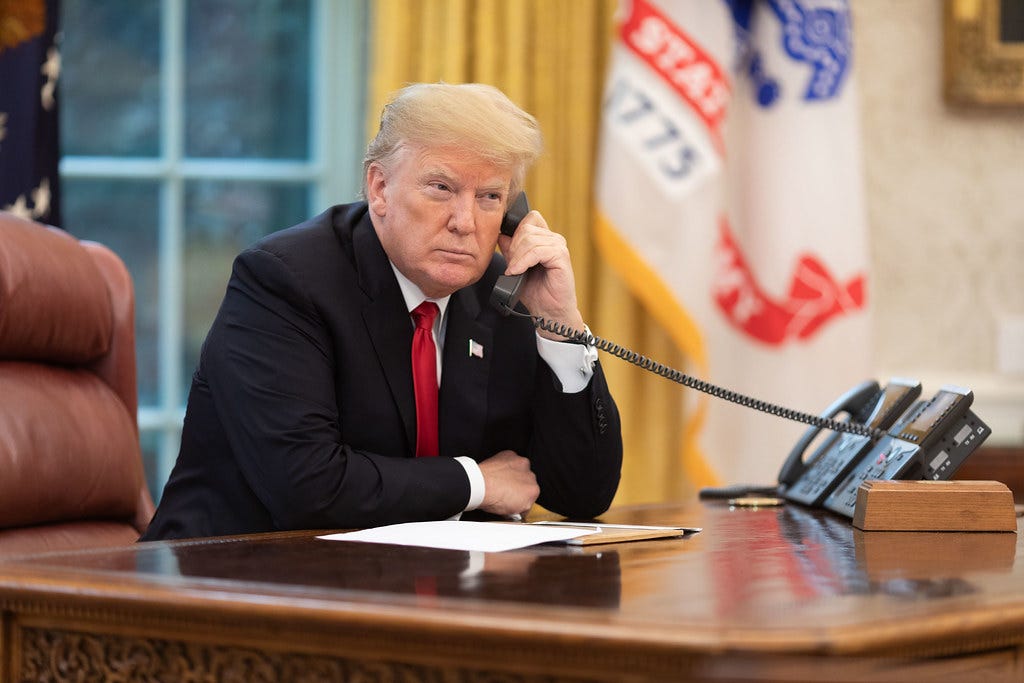Israel's airstrikes targeting Hamas leaders in Qatar's capital, Doha, have shattered President Donald Trump's carefully orchestrated ceasefire negotiations and thrust the administration into an unprecedented diplomatic crisis with one of its most critical Middle Eastern allies.
The September 9 attack, dubbed "Operation Summit of Fire" by Israeli forces, struck a residential building where Hamas negotiators were meeting just hours before they were scheduled to deliver their response to Trump's latest ceasefire proposal. The timing has left U.S. officials scrambling to salvage both ceasefire talks and America's credibility across the region.
Trump's "Final Warning" Falls on Deaf Ears
The strike came just one day after Trump issued what he termed his "final warning" to Hamas regarding acceptance of an "all for all" prisoner exchange deal that would have released Israeli hostages in exchange for Palestinian prisoners and triggered a 60-day ceasefire. According to CNN's detailed reconstruction, Qatari and Israeli negotiating teams had worked through the night until 5:00 AM, with Hamas committing to respond within 12 hours.
Instead of waiting for that response, Israeli missiles struck the building where intelligence believed senior Hamas leaders were congregating. The attack killed five Hamas members, including Humam al-Hayya, son of chief negotiator Khalil al-Hayya, along with a Qatari security officer.
"I was very unhappy about it, very unhappy about every aspect. I'm not thrilled about the whole situation. It's not a good situation."
Trump's rare public rebuke of Israel demonstrated the administration's frustration with its closest Middle Eastern ally. The president emphasized that while targeting Hamas was legitimate, striking Qatar—home to the most extensive U.S. military base in the region—was unacceptable.
Diplomatic Fallout Threatens Regional Strategy
The attack has severely damaged America's relationships across the Gulf region, with Qatar condemning the strikes as "state terrorism" and warning they could derail peace negotiations. Prime Minister Mohammed bin Abdulrahman al-Thani described the operation as a violation of Qatari sovereignty, which occurred in a residential neighborhood near schools and nurseries.
Qatar's fury extends beyond rhetoric. The nation has hosted Hamas's political office since 2012 and served as the primary mediator in ceasefire talks alongside Egypt and the United States. Gulf Cooperation Council members have rallied around Qatar, with leaders visiting Doha in solidarity and discussing collective responses to Israel's actions.
The Washington Institute for Near East Policy warned that Israel's strike "will likely weaken one of the Trump administration's main diplomatic bridges for resolving the Gaza war". Analysts note that Qatar's role as mediator has been central to Trump's Middle East strategy, making the diplomatic breach particularly damaging.
Hamas Declares Negotiations "Assassinated"
Hamas officials declared that Israel had effectively "assassinated the entire negotiation process" through the targeted killing of their negotiating team members. The group's spokesperson emphasized that the attack was designed to "torpedo" ongoing ceasefire discussions and vowed continued resistance.
Despite Israeli claims of success, Hamas leadership appears to have survived the strike. Khalil al-Hayya, the group's chief negotiator and Gaza leader, has not been seen publicly since the attack, but Hamas maintains its senior leadership remains intact. The group has promised to "keep fighting" in response to what it characterizes as Israeli escalation.
The strike mirrors previous Israeli assassinations of Palestinian negotiators, including the 1996 killing of Hamas military chief Yahya Ayyash during Oslo peace talks, which triggered retaliatory attacks and complicated diplomatic efforts. Critics argue that such tactics consistently undermine peace processes by eliminating moderate voices and empowering hardliners.
International Credibility Crisis Emerges
The incident has sparked broader questions about American credibility as a mediator in Middle Eastern conflicts. Al Jazeera analysis suggests Trump's failure to restrain Israel "undermines US credibility" and raises concerns about America's role as a military partner in the Gulf region.
Saudi Arabia, Egypt, the United Arab Emirates, and the European Union have all condemned the attack, potentially jeopardizing Trump's broader regional integration goals. The strike occurred as the administration was simultaneously pursuing normalization agreements between Israel and Arab states, efforts now complicated by perceptions of American inability to control Israeli actions.
The diplomatic crisis represents a significant test for Trump's "America First" foreign policy approach, which has emphasized transactional relationships while maintaining strong support for Israel. The administration now faces the challenge of rebuilding trust with Gulf allies while preserving its strategic partnership with Israel in an increasingly volatile region where such miscalculations can have far-reaching consequences for American interests and regional stability.



